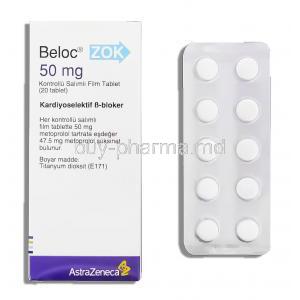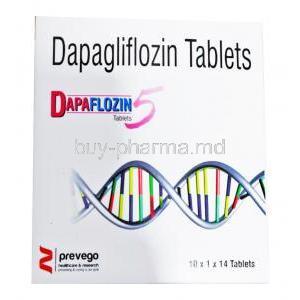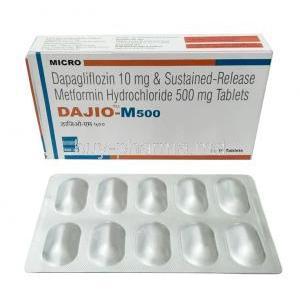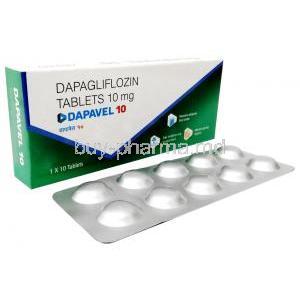It is important to study the various technologies involved to understand the uses, benefits, and potential risks. Carvedilol is a widely prescribed medication for treating high blood pressure and heart failure. This comprehensive guide will delve into the crucial aspects of taking carvedilol.
By reading further, you'll gain valuable knowledge about the indications for carvedilol usage and how it can help manage your blood pressure or heart condition effectively. Additionally, we will discuss proper dosage and administration guidelines to ensure optimal results while minimizing side effects.
We will also cover potential side effects associated with carvedilol use and any possible interactions with other medications that could impact its efficacy. Furthermore, contraindications and precautions will be addressed so you can make an informed decision before buying Carvedilol.
Last but not least, monitoring progress during treatment is vital; hence we'll guide you on adjusting dosages based on individual responses to maximize therapeutic outcomes safely.
Table of Contents: Buy Carvedilol
- Understanding Carvedilol
- The Role of Beta-Blockers
- How Carvedilol Works on The Heart And Blood Vessels
- Indications for Carvedilol
- Dosage and Administration
- Potential Side Effects
- Interactions with Other Medications
- Contraindications and Precautions
- Monitoring Progress and Adjusting Treatment
- Buy Carvedilol
Understanding Carvedilol
Carvedilol is a medication commonly prescribed to treat various heart-related conditions. It belongs to the class of drugs known as beta-blockers, which block certain chemicals in your body that affect your heart and blood vessels. This section will discuss the beta-blockers role and how carvedilol works on the heart and blood vessels.
The Role of Beta-Blockers
Beta-blockers are medications designed to reduce the workload on your heart by slowing down its activity. Beta-blockers inhibit the transmission of signals from hormones like adrenaline by obstructing beta-adrenergic receptors. By blocking the beta-adrenergic receptors, beta-blockers reduce stress hormones and help to lower blood pressure, improve circulation, and protect against damage caused by excessive strain on the cardiovascular system.
- Lowering Blood Pressure: Beta-blockers like carvedilol can effectively lower high blood pressure (hypertension) by reducing the force your heart pumps blood through your arteries.
- Improving Blood Flow: These medications also increase oxygen supply to the muscles surrounding your coronary arteries, improving overall circulation.
- Protecting Against Damage: Lastly, beta-blockers can minimize potential harm caused due to increased stress levels or overexertion during physical activities such as exercise or heavy lifting.
How Carvedilol Works on The Heart And Blood Vessels
Taking carvedilol has numerous benefits for patients suffering from heart-related conditions. It combines the effects of beta-blockers and alpha-blockers, making it a unique medication. Here's how carvedilol impacts your cardiovascular system:
- Reducing Heart Rate: Carvedilol slows down your heart rate, allowing it to pump blood more efficiently and with less effort.
- Dilating Blood Vessels: This medication also helps dilate (widen) blood vessels throughout your body, lowering blood pressure and improving circulation.
- Decreasing Oxygen Demand: By reducing the workload on your heart, carvedilol decreases its oxygen demand, thereby minimizing potential damage caused by inadequate oxygen supply during stress or physical exertion.

In summary, understanding how carvedilol functions as a beta-blocker is crucial for patients prescribed this medication. Carvedilol's ability to lower heart rate and widen blood vessels makes it a suitable treatment for hypertension, heart failure, and post-heart attack recovery. If you take carvedilol to treat high blood pressure or heart failure, consult your healthcare provider for more information about the medication and its potential benefits and risks.
Understanding the various aspects of Carvedilol before considering it as a medication option is essential. Now, by examining its applications, let's evaluate if Carvedilol is the proper medication for you.
Carvedilol is a beta-blocker medication that works by slowing down the heart rate and widening blood vessels, making it an effective treatment for hypertension, heart failure, and post-heart attack recovery. It reduces the workload on the cardiovascular system while improving overall circulation and protecting against potential damage caused by stress or physical exertion. Consult with your healthcare provider to learn more about its benefits and risks.
Indications for Carvedilol
Carvedilol is a versatile medication prescribed to treat various heart-related conditions. Its primary indications include hypertension, heart failure, and post-heart attack recovery. Let's look at these conditions and how carvedilol can help manage them.
Hypertension
Hypertension, or high blood pressure, occurs when the force of blood against your artery walls is consistently too high. Uncontrolled hypertension can result in life-threatening conditions such as stroke, heart attack, kidney disease, and vision loss. Carvedilol belongs to a class of medications called beta-blockers that effectively lower blood pressure by reducing the workload on your heart and relaxing your blood vessels.
Heart Failure
In heart failure, the heart muscle weakens over time and becomes less efficient at pumping blood throughout the body. This results in fluid buildup (edema) in various body parts like the lungs, legs, or abdomen, leading to shortness of breath, fatigue, and swelling, among other symptoms. Carvedilol helps improve this condition by slowing the progression of heart failure through its dual action as both an alpha-1 blocker (vasodilation effect) and a non-selective beta-adrenergic antagonist (decreasing cardiac output).
Post-heart Attack Recovery
A heart attack occurs when blood flow to a part of the heart muscle is blocked, usually by a blood clot. This can cause damage or death of the affected heart muscle cells. Carvedilol is essential in post-heart attack recovery as it helps reduce the risk of further complications and improves overall survival rates. By decreasing the workload on your heart and allowing it to heal more effectively, carvedilol contributes significantly to better long-term outcomes for patients who have experienced a heart attack.
In summary, carvedilol is essential for managing hypertension, treating heart failure symptoms, and improving post-heart attack recovery chances. You must carefully follow your healthcare provider's instructions regarding dosage and administration to ensure optimal treatment results. If you take carvedilol to treat high blood pressure or heart failure, monitoring your blood pressure regularly and reporting any significant changes to your healthcare provider is essential.
Carvedilol is prescribed to treat hypertension, angina pectoris, and congestive heart failure, and it is essential to understand the correct usage of this medication for optimal results. Knowing how Carvedilol should be administered is important to maximize its effectiveness.
Carvedilol is a medication for hypertension, heart failure, and post-heart attack recovery. It works by reducing the workload on the heart and relaxing blood vessels. Patients should follow their healthcare provider's instructions carefully for optimal treatment results and monitor their blood pressure regularly if taking carvedilol for high blood pressure or heart failure.
Dosage and Administration
When taking carvedilol, understanding the proper dosage and administration is crucial for achieving optimal results in managing your heart-related conditions. This section will discuss recommended dosages for different situations, how to adjust the dosage based on individual needs, and tips on how to take carvedilol effectively.
Recommended Dosages for Different Conditions
- Hypertension: The initial dose typically starts at 6.25 mg twice daily. Depending on your response and tolerance, your doctor may gradually increase the amount to 50 mg daily.
- Heart Failure: An initial dose of 3.125 mg twice daily is common for patients with mild-to-severe heart failure. Your doctor may double this dose every two weeks until you reach a target maintenance dose of 12.5-50 mg daily.
- Post-heart Attack Recovery: The usual starting dosage after a heart attack is around 6.25 mg, taken twice daily, which can be increased by your healthcare provider depending upon the patient's condition.
Adjusting the Dosage for Individual Needs
When determining the appropriate carvedilol dosage, your healthcare provider will carefully consider age, weight, kidney function, other medical conditions, or medications. You must follow their instructions closely and never change your prescribed dosage without consulting them first. source
Taking Carvedilol: With or Without Food?
Carvedilol should be taken with food to help improve its absorption and reduce the risk of orthostatic hypotension (a sudden drop in blood pressure when standing up). It's also essential to take your medication simultaneously (s) each day, as this helps maintain consistent levels of carvedilol in your bloodstream. If you forget a dose, take it as soon as possible unless it's close to the next scheduled one - then skip and stick with your regular plan. source
Understanding proper dosage and administration is crucial for effectively managing heart-related conditions with carvedilol. Always follow your healthcare provider's instructions closely and never hesitate to ask questions or seek clarification.
It is important to follow the dosage and administration instructions for Carvedilol as your doctor prescribes. Before commencing treatment, being mindful of any potential reactions when taking Carvedilol is imperative.
To achieve optimal results in managing heart-related conditions, it is crucial to understand the proper dosage and administration of carvedilol. Recommended dosages for different situations and how to adjust the dosage based on individual needs are discussed. It's important to take carvedilol with food simultaneously daily and follow your healthcare provider's instructions closely.
Potential Side Effects
As with any medication, carvedilol may cause side effects in some patients. Knowing the possible side effects and when to seek medical help is essential. This section will discuss common and severe side effects associated with carvedilol use and provide tips on managing them.
Common Side Effects
The most frequently reported side effects of carvedilol include the following:
- Dizziness or lightheadedness
- Fatigue or weakness
- Headache
- Nausea or vomiting
- Diarrhea or constipation
Mild reactions may occur as your body gets used to the medicine, but they usually disappear. If these symptoms are persistent or worsen, it is advised to consult a healthcare provider.
Serious Side Effects and When to Seek Medical Help
In rare cases, carvedilol can cause more severe side effects that require immediate medical attention:
- Chest pain or discomfort
- Shortness of breath
- Swelling in the hands, feet, ankles, or lower legs
- Slow heart rate (bradycardia)
- Fainting spells (syncope)
Contact your doctor immediately if you experience severe side effects while taking carvedilol.
Managing Side Effects
To minimize potential adverse reactions from carvedilol treatment:
- Take the medication exactly as prescribed by your doctor
- Inform your healthcare provider about all other medicines you are currently taking
- Stay hydrated and maintain a balanced diet
- Avoid alcohol and tobacco use
If side effects persist or become bothersome, consult your healthcare provider for advice on managing them. They may recommend adjusting the dosage or trying alternative treatments to help alleviate symptoms.
For more information about carvedilol's potential side effects, visit the Drugs.com page dedicated to this topic.
It is critical to be cognizant of the possible repercussions of utilizing Carvedilol to decide if it is suitable for you. We'll then examine how this drug may interact with your other medicines.
Interactions with Other Medications
When taking carvedilol, it is essential to be aware of potential interactions with other medications that could either reduce its effectiveness or increase the risk of side effects. This section will discuss drugs to avoid while taking carvedilol and provide guidance on safe combinations and precautions.
Drugs to Avoid While Taking Carvedilol
- Calcium channel blockers: Combining carvedilol with certain calcium channels blockers like verapamil or diltiazem can decrease heart rate and blood pressure. Your healthcare provider may need to adjust the dosages if you are prescribed both medicines. Learn more about calcium channel blockers here.
- Digoxin: This medication treats heart failure and atrial fibrillation but can interact negatively with carvedilol by increasing the risk of bradycardia (slow heartbeat). Your doctor should closely monitor your condition if these two drugs are taken together. Find out more about digoxin here.
- Certain antiarrhythmic medications: Drugs such as amiodarone, disopyramide, or quinidine can have additive effects on slowing down the heart rate when combined with carvedilol; therefore, caution must be exercised when using them together.
- PDE-5 inhibitors: Medications like sildenafil, tadalafil, and vardenafil used for erectile dysfunction can cause a significant drop in blood pressure when taken with carvedilol. It is essential to communicate with your healthcare provider about your medications. Learn more about PDE-5 inhibitors here.
- Nonsteroidal anti-inflammatory drugs (NSAIDs): These medications, such as ibuprofen or naproxen, may reduce the effectiveness of carvedilol in lowering blood pressure. Consult your doctor before taking NSAIDs while on carvedilol therapy.
Safe Combinations and Precautions
In some cases, taking other medications alongside carvedilol might be necessary to manage heart-related conditions effectively. Your healthcare provider will determine the appropriate combination based on your needs and closely monitor potential interactions.
- Angiotensin-converting enzyme (ACE) inhibitors: Combining ACE inhibitors like lisinopril or ramipril with carvedilol has been shown to improve outcomes in patients with heart failure; however, this combination should be carefully monitored by a medical professional due to possible additive effects on blood pressure reduction.
- Aldosterone antagonists: Spironolactone or eplerenone can also be combined safely with carvedilol under close supervision by a healthcare provider for treating heart failure symptoms.
- Blood thinners: If you have atrial fibrillation or another condition requiring anticoagulation therapy and beta-blockers like Carvedilol, your doctor may prescribe blood thinners such as warfarin or apixaban. It is essential to monitor the effectiveness of these medications and adjust dosages accordingly.
It is crucial to inform your healthcare provider about all the medications, supplements, and over-the-counter drugs you are taking to ensure safe and effective treatment with carvedilol. Regular check-ups will help monitor potential interactions and make necessary adjustments for optimal heart health management.
It is important to be aware of any potential interactions between Carvedilol and other medications, as these can affect the effectiveness of both. Hence, before starting treatment, knowing the warnings and possible interactions associated with Carvedilol is important.
When taking carvedilol, it is important to be aware of potential interactions with other medications that could reduce its effectiveness or increase the risk of side effects. Calcium channel blockers, digoxin, certain antiarrhythmic medications, PDE-5 inhibitors, and NSAIDs should be avoided. In contrast, ACE inhibitors and aldosterone antagonists can be combined safely under close supervision by a healthcare provider for treating heart failure symptoms. It is crucial to inform your healthcare provider about all your medications to ensure safe and effective treatment with carvedilol.
Contraindications and Precautions
Taking carvedilol is not suitable for everyone, as certain medical conditions or circumstances may require special consideration or even make the medication unsafe to use. In this section, we will discuss who should not take carvedilol, conditions that require special attention, and considerations for pregnant and breastfeeding individuals.
Who Should Not Take Carvedilol
If you have any of the following conditions, it's essential to inform your healthcare provider before starting carvedilol:
- Asthma or other severe lung problems
- Severe bradycardia (slow heart rate)
- Sick sinus syndrome (a type of irregular heartbeat) without a pacemaker
- Second- or third-degree heart block without a pacemaker
- Certain types of uncontrolled heart failure
- An allergy to carvedilol or its ingredients
Conditions That Require Special Consideration
In some cases, people with specific health issues can still take carvedilol but may need extra monitoring by their healthcare providers. These include:
- Kidney disease
- Liver disease
- Different types of diabetes mellitus
- Thyroid disorders
- Peripheral vascular diseases such as Raynaud's disease
If you have any of these conditions, be sure to consult with your doctor so they can closely monitor your progress and adjust treatment accordingly.
Mayo Clinic: Carvedilol Precautions provides more information on contraindications and precautions for carvedilol.
Pregnancy and Breastfeeding
Carvedilol should be used cautiously during pregnancy, as it may have potential risks to the fetus. If expecting or planning to become pregnant, talking with a healthcare provider about the advantages and potential dangers of taking carvedilol is essential.
If you are breastfeeding, it's important to know that carvedilol can pass into breast milk. Discuss with your physician if taking this medicine while breastfeeding is prudent or if other treatments should be considered.
It is critical to be conscious of the restrictions and warnings linked with using Carvedilol, as these can aid you in making an informed choice regarding its suitability. Moving on, monitoring progress, and adjusting treatment are key components when considering this medication.
Monitoring Progress and Adjusting Treatment
Regular check-ups and tests are crucial for ensuring the effectiveness of your carvedilol treatment. This section will discuss the importance of monitoring progress, recognizing signs of improvement or potential setbacks, and adjusting the dosage or switching medications when necessary.
Regular Check-Ups and Tests
Your healthcare provider will schedule regular appointments to monitor your heart health while taking carvedilol. At these visits, your healthcare provider will likely take blood tests to check kidney and liver function and electrolyte levels, measure your blood pressure, and conduct an ECG. It is essential to attend these appointments consistently so that any medication adjustments can be made promptly if needed.
Signs of Improvement and Potential Setbacks
Paying attention to how you feel during carvedilol treatment can help you recognize improvements in symptoms, such as reduced shortness of breath or less leg swelling due to better-managed heart failure. However, it is also important to be aware of potential setbacks like increased fatigue or worsening chest pain that could indicate a need for dosage adjustment or alternative therapy.
- Improvements:
- Better exercise tolerance
- Fewer episodes of shortness of breath at rest or during exertion
- Reduced leg swelling
- Potential Setbacks:
- Increase in fatigue despite adequate rest
- Worsening chest pain or discomfort
- New onset of dizziness, lightheadedness, or fainting
Adjusting Dosage or Switching Medications
If your healthcare provider determines that carvedilol is not providing the desired benefits or if you experience significant side effects, they may adjust your dosage. This could involve increasing the dose gradually to achieve better symptom control while minimizing side effects. Alternatively, if carvedilol is not well-tolerated despite dosage adjustments, your healthcare provider might consider switching you to a different beta-blocker like metoprolol (Lopressor) or bisoprolol (Zebeta). It is essential to keep your healthcare team informed of any worries and symptoms so that they can make sound decisions regarding your treatment program.
Regular check-ups and tests are important to monitor the effectiveness of carvedilol treatment. Patients should pay attention to signs of improvement or potential setbacks, such as reduced shortness of breath versus increased fatigue, and communicate openly with their healthcare team about any concerns or symptoms so that dosage adjustments or medication switches can be made if necessary.
Buy Carvedilol
Carvedilol is a medication used to treat heart failure and high blood pressure. Blood vessels can be relaxed by Carvedilol, aiding the heart in pumping blood through the body. Before buying Carvedilol, it is important to understand its indications, dosage, potential side effects, interactions with other medications, contraindications, and precautions.
If you're considering buying Carvedilol or have already started taking it as your doctor prescribes, monitor your progress closely and adjust treatment accordingly. Stay in close contact with your healthcare provider to ensure that you take Carvedilol safely and effectively.
Ready to buy Carvedilol? Visit buy-pharma.md now!











































































